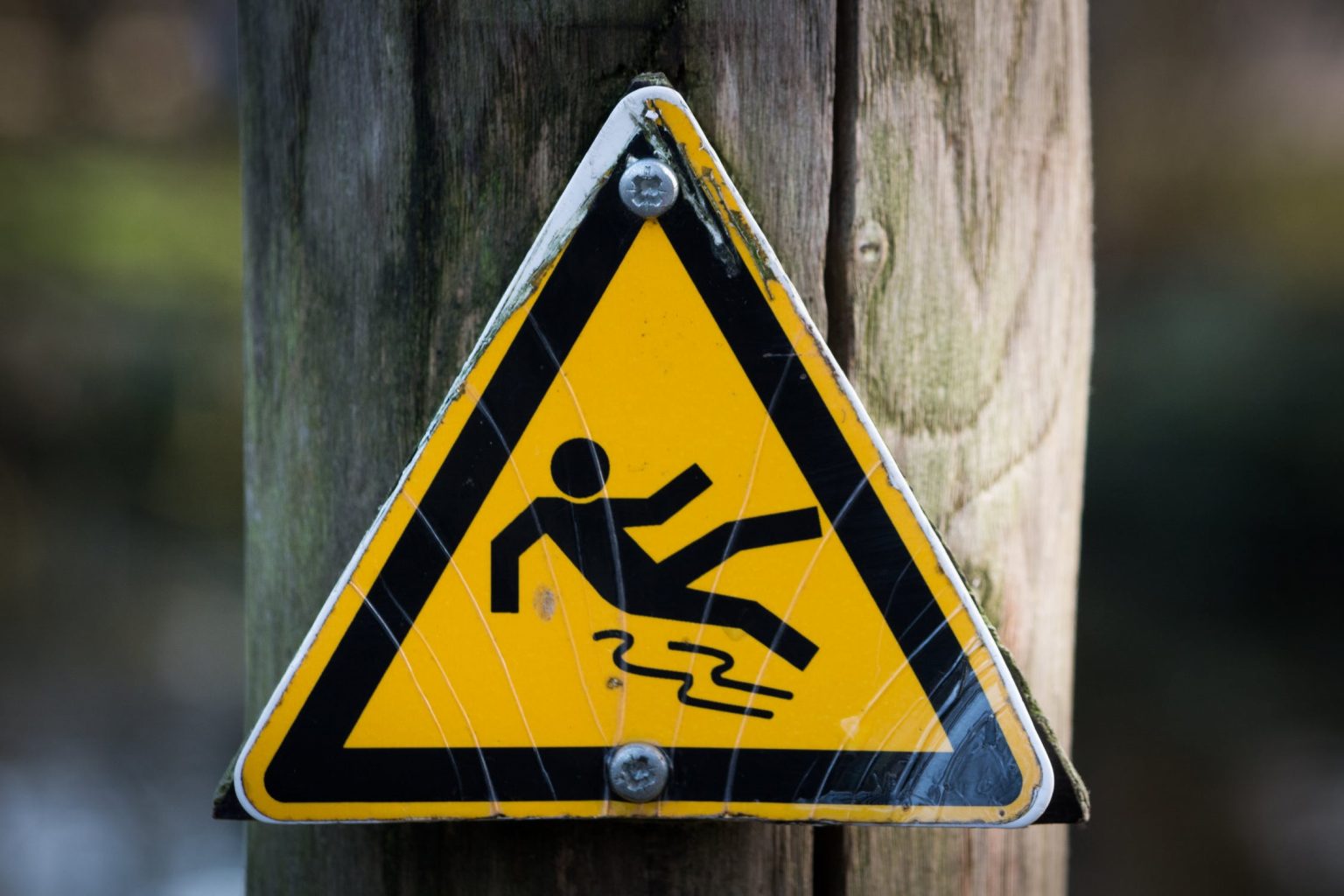According to the National Safety Council, rear-end collisions are the most common type of two-vehicle car accident, accounting for nearly 4 million crashes in 2022. A rear-end car accident occurs when a vehicle hits the back of the car in front of it.
While rear-end car accidents are always challenging and stressful matters to deal with, the process becomes even more complicated when an out-of-state driver rear-ends you. However, a knowledgeable personal injury attorney can expertly navigate the system for you and ensure you receive compensation.
Florida’s No-Fault Insurance Laws
Traditional liability auto insurance, which is still the standard in most states in the U.S., assigns “fault’ for any car crash. Once fault is determined, the responsible party’s insurance company is on the hook for all medical expenses, pain and suffering, and property damage resulting from the car crash.
However, Florida is one of a handful of states in the U.S. that have enacted “no-fault” auto insurance laws. This means that your car insurance company must provide Personal Injury Protection (PIP) coverage as part of your auto insurance policy. PIP reimburses your medical expenses and lost wages resulting from the crash, even if you do not cause the accident.
Florida no-fault insurance laws also provide bodily injury coverage for:
- Relatives in the same household
- Anyone driving the insured vehicle
- Passengers
- Pedestrians or bicyclists injured by the insured vehicle
However, there are substantial limitations to the coverage you receive through PIP. First, the maximum amount PIP will pay is $10,000, which is relatively low, given that the average price of a 3-day hospital stay is about $30,000.
On top of that, Florida PIP only covers 80% of the medical expenses you incur and 60% of lost wages if you can’t work due to your injury. This means you’ll be stuck footing the bill for 20% of your medical costs and will lose over a third of your regular income.
Property Damage
PIP also will not compensate you for any property damage, pain and suffering, or emotional distress you experience due to the accident. Traditional liability rules still apply for property damage claims, so you can file a property claim with the at-fault driver’s insurer, or your insurer if you carry collision coverage.
Common property damages in rear-end collisions include the cost of repairing your car and replacing personal property damaged or destroyed in the accident, such as your phone, a laptop, or clothing.
You can also receive “loss of use” damages for the time your car is in the shop. In Florida, you are entitled to the cost of renting a similar vehicle for the time you cannot use your car, regardless of whether or not you actually rent one.
If your vehicle is declared a total loss, you are entitled to receive its fair market value. Florida law defines a “total loss” as any situation where the cost to repair the car is 80% or greater of its actual cash value.
When You Can Sue
To step outside of Florida’s no-fault system to pursue a liability claim against the at-fault driver, you must suffer “serious” injuries as specified by state law. Florida defines a serious injury as any of the following:
- Significant permanent loss of an essential bodily function
- Permanent injury other than scarring or other disfigurements
- Significant permanent scarring or disfigurement.
- Death
If your injuries satisfy this threshold, you can hold the at-fault driver responsible for the accident by filing a claim against their auto insurance policy or pursuing a personal injury lawsuit. You will also be able to receive compensation for non-economic losses, which include pain, suffering, mental anguish, and inconvenience in Florida.
Suing an Out-of-State Driver
The fact that an out-of-state driver does not live in Florida does not mean they don’t have to follow the law while they are in the state. Like Florida drivers, out-of-state drivers have a legal duty to avoid causing car crashes on Florida roads. If the out-of-state driver is at fault for the accident, you can file a claim with their insurance company for property damage or serious injury.
You are also able to pursue a lawsuit against a non-Floridian who injures you in a car crash. The statute that gives Florida courts the power to make decisions that apply to out-of-state drivers is called Florida’s “Long Arm Statute.”
By entering Florida and causing an accident within the state, the out-of-state driver is legally considered to have subjected themselves to Florida’s jurisdiction. This means that the driver will be bound by a judgment against him issued by a Florida court. The driver cannot avoid responsibility for their actions by leaving Florida.
Liability in Rear-End Collisions
According to the National Highway Traffic Safety Administration, the driver of the last car in a rear-end accident is almost always assigned fault. Most of the time, the rear-ender will be fully liable for the crash, and the only thing to fight with their insurance company about is how much money you should get for your property damage.
However, there are a few exceptions to this general rule, where the driver who was rear-ended can be found responsible. For instance, the Florida Department of Highway Safety and Motor Vehicles states that if the front driver was driving recklessly or erratically, making it impossible for the back driver behind to avoid hitting them, the front driver will probably be found at fault. The same is true if the front driver stops short without giving any reasonable notice to the back driver.
In some situations, the insurance company might argue that both parties are at least partially responsible for the accident. This is called comparative fault or comparative negligence. Florida law follows a “pure comparative fault” rule when both drivers are found to have some responsibility for a car crash. Under this rule, your damages are reduced by a percentage equal to your share of the blame.
Understanding Cross-State Liability Challenges
There’s no denying that an out-of-state driver accident complicates your insurance claim, which is why hiring a Florida rear-end collision attorney is so crucial to receiving the compensation you truly deserve. Since many other states operate under at-fault insurance laws, local drivers operating with Florida no-fault insurance may have trouble filing claims with out-of-state insurance companies that attempt to delay, deny, or refuse to comply with the local laws. This is a perfect example of when to seek auto accident legal advice, especially if the legal battle crosses state lines.
No-fault laws also have a few notable exceptions, including instances where severe injuries exceed $10,000, or disfigurement or disability is the result of the accident. When these circumstances occur, at-fault claims can be made because they breach the PIP limits. Another important principle is the Long Arm Statute Florida employs, which allows the state to claim jurisdiction over the at-fault driver, who can then be sued in Florida courts and have to seek representation in the state for themselves.
At-fault liability coverage, in contrast to comparative negligence in Florida, can present a challenging scenario for residents to navigate on their own, and depending on your respective insurers and the extent of the damages suffered, all accidents will have their own specific nuances. Hiring a personal injury attorney for Florida rear-end collisions with out-of-state drivers is the best way to ensure you aren’t left to deal with this difficult situation on your own.
What To Do After a Rear-End Collision
If you have been involved in a car crash such as a rear-end collision, there are steps you can take to protect your ability to recover compensation.
Call the Police To File an Accident Report
In Florida, you are legally obligated to immediately contact local law enforcement if you are involved in any of the following types of car crashes:
- An accident involving an injury
- An accident where somebody was killed
- A hit-and-run accident
- An alcohol-related accident
- An accident that requires a wrecker to remove a vehicle
- An accident involving a commercial motor vehicle
- An accident where at least $500 estimated property damage occurred
You are eligible to self-report the accident on the Florida Department of Highway Safety and Motor Vehicles (FLHSMV) website in all other car crashes.
Take an Ambulance To the Hospital
Even if you feel fine, you could still be injured after a rear-end collision. After a car accident, adrenaline floods your system and can prevent you from realizing the full extent of your injuries. Additionally, if you refuse to take an ambulance to the hospital, the insurance companies may use that as evidence that you are not seriously injured.
Take Photos of the Vehicles and the Location
If it is safe to do so and you are physically able, you should photograph the vehicles involved in the accident from every angle, as well as close-up and far away. Make sure that the photos capture all of the property damage. You should also photograph the scene of the accident and any road conditions that could have played a part in the accident.
Get Contact Information From the Other Driver and Witnesses
You should get the following information from the other driver:
- Name
- Address,
- Phone number
- Driver’s license number
- License plate number
- Insurance information
If there were any witnesses to the accident, ask for their names, addresses, and phone numbers.
Notify Your Insurance Company and Hire an Attorney
Almost every auto insurance policy requires you to inform your insurer of every accident. Notifying your insurance provider is the first step when filing a no-fault PIP claim. Even if you don’t believe you were hurt in the accident or that it was your fault, you are contractually obligated to inform your insurance provider of the accident.
Most policies also contain provisions requiring you to cooperate with the investigation regarding the crash. “Cooperation” can be problematic, as insurance companies do their best to avoid paying claims (even to their own customers!) Insurers are for-profit businesses, and their business plans rely on spending as little money as possible for every claim. Insurance adjusters are trained to gather information from you to diminish your claim’s value, even if they have to resort to manipulating you or twisting your words.
For this reason, you should talk to an experienced personal injury attorney as soon as possible after your accident. A car crash lawyer will handle all communications with your insurance company, help you file a property damage claim on the other driver’s insurance policy, and advise on the necessity of going to court. If you need to sue, your attorney can use Florida’s long-arm statute to bring a suit against the out-of-state driver.
Common Injuries Resulting from Rear-End Collisions
If you are the victim of a rear-end collision in Florida, it’s very possible that you will have subsequent injuries that occur as a result of the crash. The following are some of the most common rear-end collision injuries.
- Neck injuries — By far, the most common injury suffered from rear-end collisions is whiplash, which is a severe stretching of the tendons, vertebrae, or nerves due to the forceful nature of the incident. This violent whipping forward and backward can cause headaches, tingling in the arms or legs, and even the inability to move the head altogether.
- Head injuries — It’s fairly common for your head to strike either the headrest or your steering wheel if the impact is strong enough, which could result in a variety of trauma, ranging from concussions to brain injury, tinnitus, vision impairment, and other harm to cognitive abilities.
- Back injuries — Forceful wrecks can lead to contusions in the back that can affect the spine, with herniated discs being another one of the most common injuries drivers suffer after a rear-end collision. This will have a significant effect on quality of life that can last a lifetime.
- Facial trauma — Any contact with parts of your vehicle or even the airbag can result in substantial damage to your face, in the realm of broken noses, black eyes, lacerations, scarring, and more.
- Broken bones — Depending on the severity of your accident, broken bones can be a common takeaway for drivers on the receiving end of the collision. The most common fractures are to the ribs, followed by the feet and hands, due to their locked positioning.
- Spinal cord injury — If back trauma sustained during the wreck is severe enough, it may have lasting effects on the spine, which are some of the most traumatic injuries possible in any rear-end collision.
FAQs About Out-of-State Driver Collisions
The event of a rear-end collision in Florida is something that’s bound to be a jarring experience with lasting effects that can last an unpredictable amount of time. The uncertainty surrounding the aftermath of a crash with an out-of-state driver is out of your control, and it can leave you feeling helpless. Contacting a reliable personal injury lawyer specializing in vehicle accidents can be the key to closure.
It’s not uncommon for victims of a rear-end collision to seek professional help after their experience. If it’s with an out-of-state driver, it’s actually recommended. However, it’s understandable for these individuals to have questions about the process of filing a claim, the compensation that should be expected, and more. Here are some of the most frequently asked questions regarding rear-end accidents with out-of-state drivers.
How Does Personal Injury Protection (PIP) Work with Out-of-State Insurance?
Regardless of who’s at fault, PIP coverage applies first and foremost in Florida rear-end accidents with damages totaling up to $10,000, in which case you will be able to take it up with the offending party’s insurance in compliance with their own state’s laws. If the at-fault party’s insurer does not comply in any circumstance, you should seek legal counsel immediately.
What If the Other Driver Doesn’t Have Insurance at All?
If out-of-state drivers do not carry PIP or even other car insurance at all, you will be able to handle it efficiently if you carry uninsured motorist insurance on your own personal policy. A personal injury lawsuit may be necessary if the damages are sufficient, and Florida also allows victims to pursue a civil suit if the damages exceed the $10,000 in PIP coverage.
Can I Sue an Out-of-State Driver Beyond PIP?
Yes. If injuries and medical expenses are severe enough and include instances like disfigurement or disability, permanent injury, or even wrongful death, it is considered a breach of the serious injury threshold. If the driver is operating a rental vehicle, it may come down to the rental service’s insurance policy.
How Do I Handle a Dispute from an Out-of-State Insurer?
While you can always do your best to document the events and provide as much evidence as needed to build your case, at-fault driver’s insurance companies may still try and give you the run-around. This is where seeking an experienced rear-end collision lawyer will be most helpful, as the attorneys at Long, Jean, & Wechsler are prepared to fight for you and use your evidence along with our experience to fight for your compensation.
Does Out-of-State Insurance Cover Property Damage?
When it comes to property damage claims, Florida is only concerned about property damage liability. If the other party is responsible for the rear-end collision, you’ll need the proper documents, like crash reports and repair estimates, to build your legal case and recover the damages you deserve.
If you’ve been involved in a rear-end collision or any other type of car crash, contact LJW Legal today. Our experienced team of personal injury attorneys can help you take on the confusing world of auto insurance claims and lawsuits to get you the compensation you deserve.


 How to File a Claim After a Slip and Fall Accident in a Pompano Beach Retail Store
How to File a Claim After a Slip and Fall Accident in a Pompano Beach Retail Store